Legal with Leah: The questions around data centers
Leah Curtis joins this Legal with Leah to talk about what data centers mean for local communities and how to stay engaged in the development process
Read MoreLorain County Farm Bureau recently had success getting some changes made to their CAUV designations, thanks to the help of Ohio Farm Bureau and members taking action.
Despite being around since 1973, the Current Agricultural Use Value program, or CAUV, still has some issues that pop up from time to time. On this Legal with Leah, find out about a recent issue that Farm Bureau helped to resolve at the local level. Plus, Leah Curtis gives us a heads up on the fast approaching deadline to sign up for CAUV or renew for 2023.
Listen to Legal with Leah, a podcast featuring Ohio Farm Bureau’s Policy Counsel Leah Curtis discussing topics impacting farmers and landowners.
Ty Higgins [00:00:00] Talking about CAUV for this Legal with Leah. I’m Ty Higgins, along with Leah Curtis, policy counsel for Ohio Farm Bureau. CAUV is something that Farm Bureau has been a part of for decades now. But for those who don’t know, remind us what it is.
Leah Curtis [00:00:16] So CAUV stands for Current Ag Use Value. We’re always going to say CAUV and we’ll say it quick. So I apologize for that. And it is a property tax program that values farmland for its ag potential only. And what that means is there’s a whole different method of determining your property value, versus your house or your buildings which your auditor looks at market value. What this means is there’s typically a lower tax burden for farmland because we’ve taken that development pressure out of the valuation. We’re only looking at what is its value as farmland versus what is its value to build a house on or build a gas station on or whatever.
Ty Higgins [00:00:52] Been around since 1975. So you’d think that all the wrinkles would be ironed out. But there are still some issues that pop up from time to time.
Leah Curtis [00:00:58] Never underestimate the power of wrinkles and laws. So we do have a lot of things that come up, certainly room for interpretation, and enrollment of the program and really the carrying out of that program is largely overseen by your county auditor. And of course there’s 88 county auditors. And where we have those kind of wiggle room/room for interpretation, there’s going to be differences in county to county about how they administer that program within their own offices.
Ty Higgins [00:01:26] We’ve been working with one county Farm Bureau in particular on some issues with CAUV that recently resulted in some success for Ohio Farm Bureau members.
Leah Curtis [00:01:32] So we talk to farmer members probably every day about a CAUV question, and most of the time those are very individual issues. You know, it’s my farm has this and I don’t know what to do, or I don’t understand this part of the form. But in this case, Lorain County had brought to us a concern that many people were experiencing about the way the auditor was treating certain portions of their farm. They were coding it, and everybody’s property gets coded with different property codes. They were calling it something called residual, and that was resulting in a higher value than it would have been on the CAUV value, even though it was kind of part of their overall farmland.
Ty Higgins [00:02:11] This really is the epitome of grassroots efforts, which is what Ohio Farm Bureau and our members are known for. What makes this such a great example of that?
Leah Curtis [00:02:19] So this was not a short process. I’m going to say that from the beginning. But we were able to kind of start by giving the county some good concrete information, showing them what the laws were, what the different rules were, how other counties did this. And so they kept having those conversations with the auditor directly. So they connected with their auditor in their own county. We were able to get them connected with some other auditors, some other resources that they could talk to as well and get answers to their questions. And then, most importantly, they worked locally to get that change. So the county Farm Bureau has said all along that that hard work, that discussion, but then also sending a letter to all their members locally to say, hey, this is going on, we found out about this. We’d like to help you check your property taxes and your property maps. You know, if you have a concern, join us. We want to talk about it some more. And that helped turn that corner. And so now the auditors announced that they are going to move forward with reconsidering that and recoding those properties based on all the information that the county was able to give them, based on some training that we were able to provide to all county auditors really across the state. And they’re going to have this change in their property code that’s probably going to result in a much better situation for all of them.
Ty Higgins [00:03:33] Why is that local action so important when it comes to issues like this, when they arise?
Leah Curtis [00:03:37] So these are locally elected officials. They are there in your local communities and you and your local members are the ones that vote for them. And so you are who matters most to them. When you approach those issues from that standpoint of I’m a constituent and here’s my concern, we can help here at the state office by giving you the background that you need. What is the law, what is the rule, how are other people doing it? But when you go talk to that person directly, it always goes further than somebody from some far flung place coming in and telling somebody what they think that doesn’t have that direct tie to the official. And it really is that power of grassroots. We cannot talk about it enough. We see it time and time again. We see it at the Statehouse. We see it on these local issues. When you personally talk to your legislator, when you personally talk to your auditor, to your county commissioner, they listen. They want to work for you. And so that discussion is really, when you approach it in a good way, you come at it as I want to work through this problem, that often gets you a lot farther.
Ty Higgins [00:04:36] Now, CAUV isn’t just one of those set it and forget it type of program. You don’t enroll once and just think it’s going to continue. That has to be renewed, or you even have to sign up before a certain timeline. What does that look like?
Leah Curtis [00:04:47] So remember that CAUV is a program you have to choose to be in. Nobody just gets to be in it. So if you’re new to the program, you want to sign up, or you are going to renew you have to do that prior to the first Monday in March of each year. So after the first Monday in January, prior to first Monday in March. If you’re a renewal, you’ve probably already got a form in the mail. So that information should already be in your hands. Hopefully you’re getting that filled out. If you’re an initial sign up, you may need to call or visit the autitor’s office to get that form. All your information needs to be turned in prior to the first Monday in March. So that’s March 6 this year; I would suggest prior to would be March 3. That’s Friday. Just to be safe, I actually always recommend if you get that renewal form, and I even tell my parents, fill it out the next day and send it back the next day. Don’t forget about it, because if you would get removed, there could be problems that you would incur.
Ty Higgins [00:05:42] What are those issues if we forget or simply don’t meet that deadline?
Leah Curtis [00:05:46] So if you’re new to the program and you forget or you don’t meet the deadline, you’ll have to wait till next year. So you’re going to miss out on a year of that program. If you’re a renewal, it could be that you would get removed from the program and with CAUV it is a farmland preservation tool. So it’s a benefit to get into it and there is a penalty to leave it. So if you would miss the deadline, you wouldn’t get that fixed, and you get out of the program, you have to pay recoupment and recoupment is equal to three years of your tax savings that you had by being on the program. Depending on where you live, that can be different. If you ever want to know, your auditor can usually tell you what your recoupment would be, but you will pay back three years of savings if you leave the program.


Leah Curtis joins this Legal with Leah to talk about what data centers mean for local communities and how to stay engaged in the development process
Read More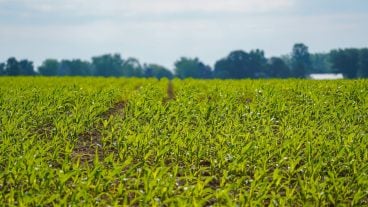
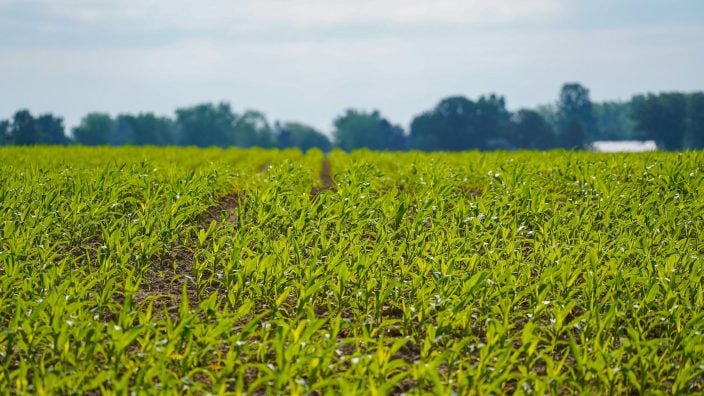
Ohio Farm Bureau advocated for a change in the law to allow family members and employees to handle pesticides while under the supervision of a licensed applicator. The rules around HB 10 are being finalized.
Read More

Four property tax reform bills were signed into Ohio law at the end of 2025. Ohio Farm Bureau Associate General Counsel Leah Curtis breaks down the bills and what the changes mean for Ohioans.
Read More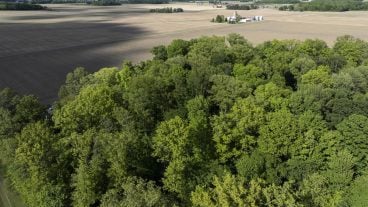

Learn what the requirements are to legally fly a drone in Ohio as well as steps the Ohio Legislature has taken in terms of security concerns.
Read More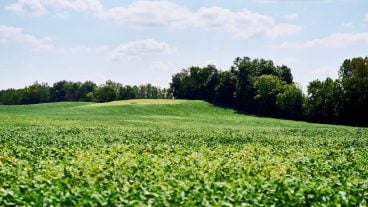
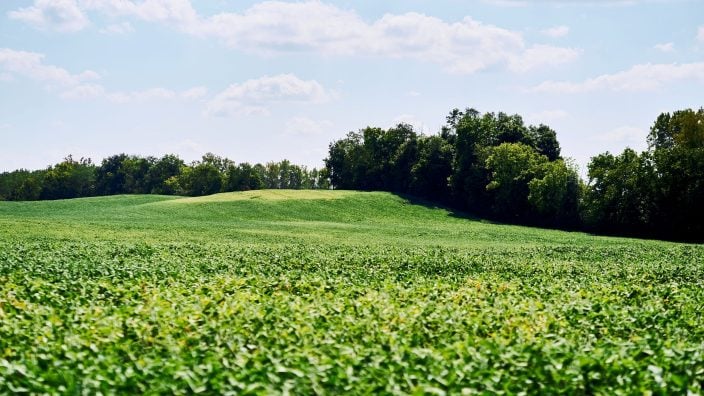
In 2025, about 21 counties are going through a reappraisal or update, and because Ohioans pay taxes one year behind, they will see new property tax bills in January 2026.
Read More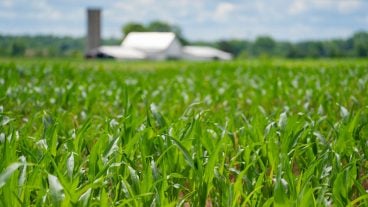
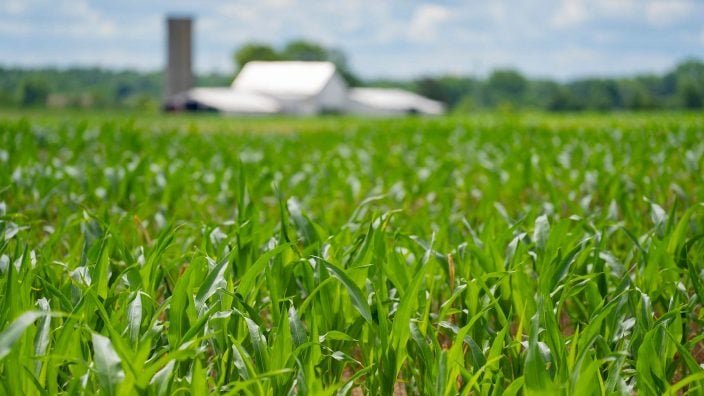
Any unlicensed handlers who use restricted use pesticides will need to have additional training. Farm Bureau will be working on legislation to give employers a choice on how to provide training.
Read More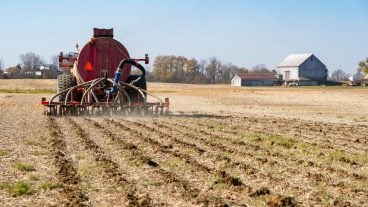
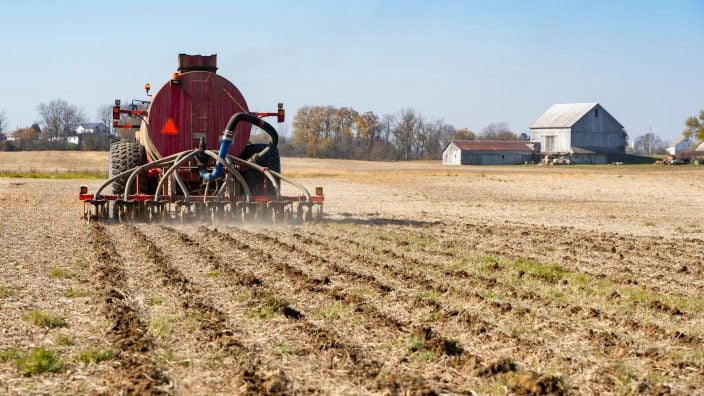
Current Agricultural Use Value is often discussed as a farmland preservation tool, but there are some other tools in the law that landowners can consider.
Read More

Update: As of Feb. 27, 2025, the Financial Crimes Enforcement Network announced no fines, penalties or enforcement action will be taken against companies based on failure to file or update BOI by March 21.
Read More

Update: As of Feb. 27, 2025, the Financial Crimes Enforcement Network announced they would not issue any fines or penalties or take enforcement action against companies based on failure to file or update beneficial ownership information reports by the March 21, 2025, deadline.
Read More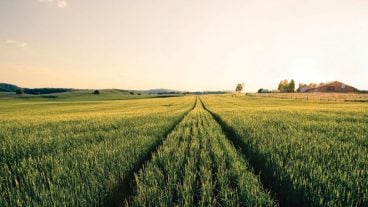

Update: As of Feb. 27, 2025, the Financial Crimes Enforcement Network announced they would not issue any fines or penalties or take enforcement action against companies based on failure to file or update beneficial ownership information reports by the March 21, 2025, deadline.
Read More